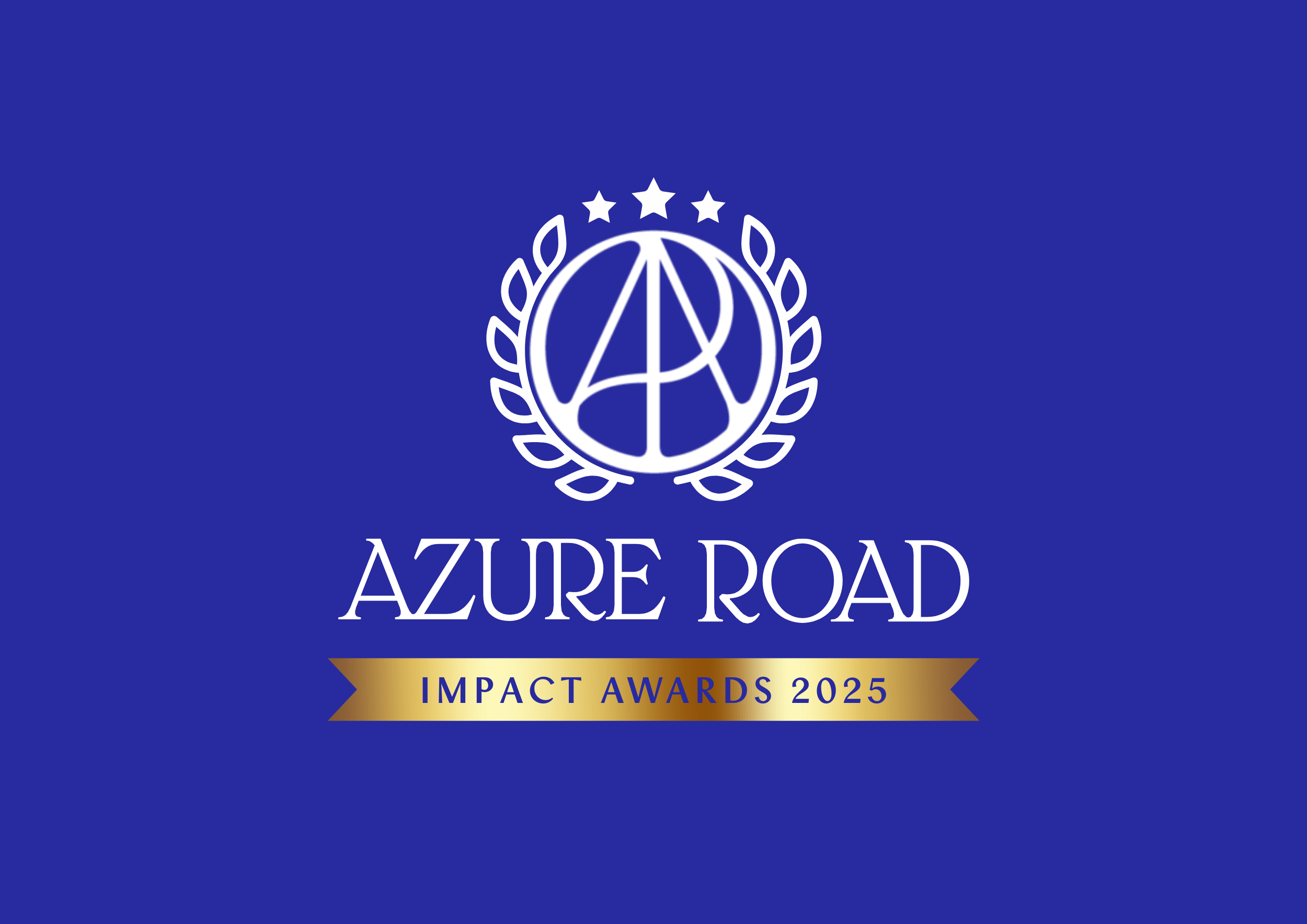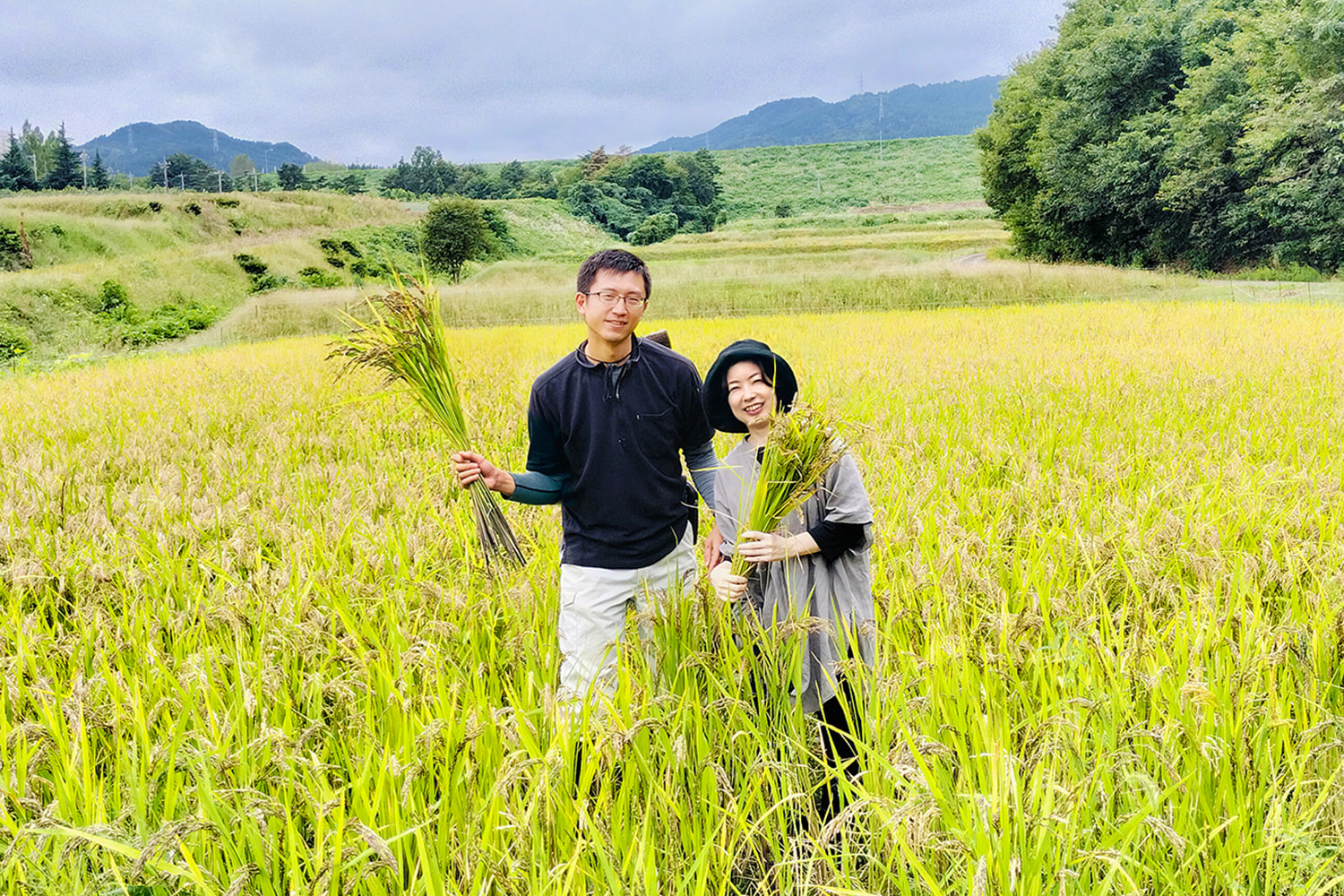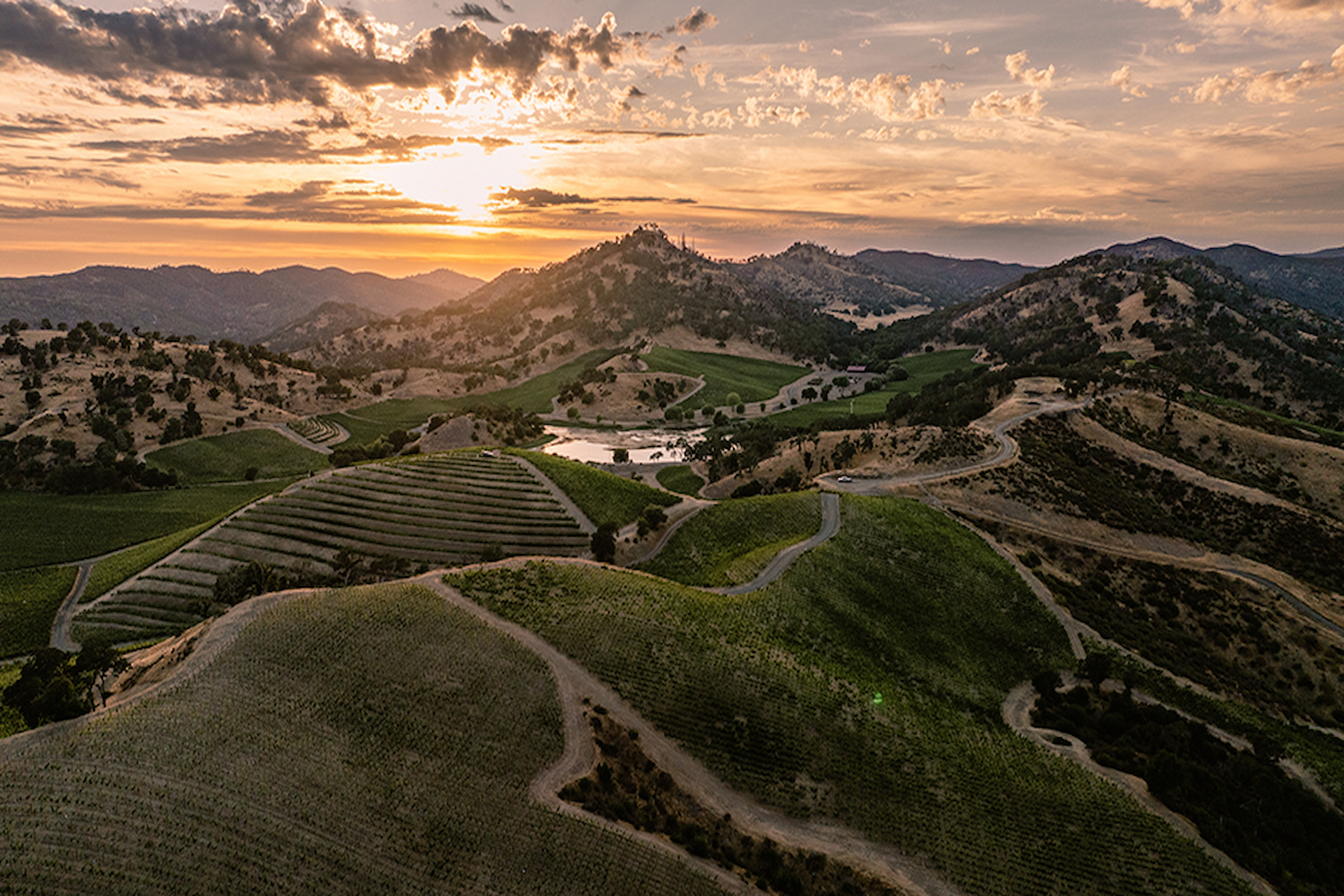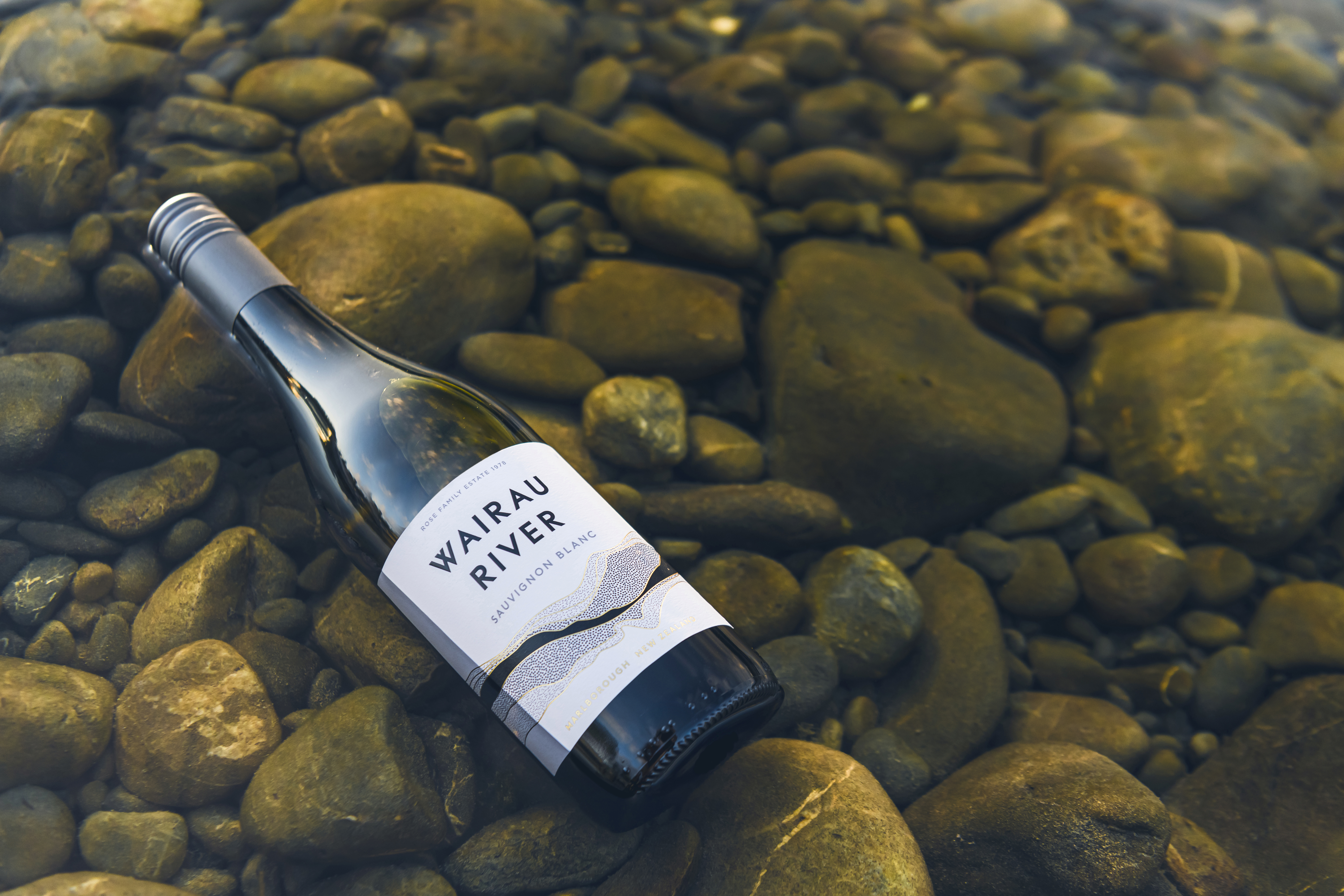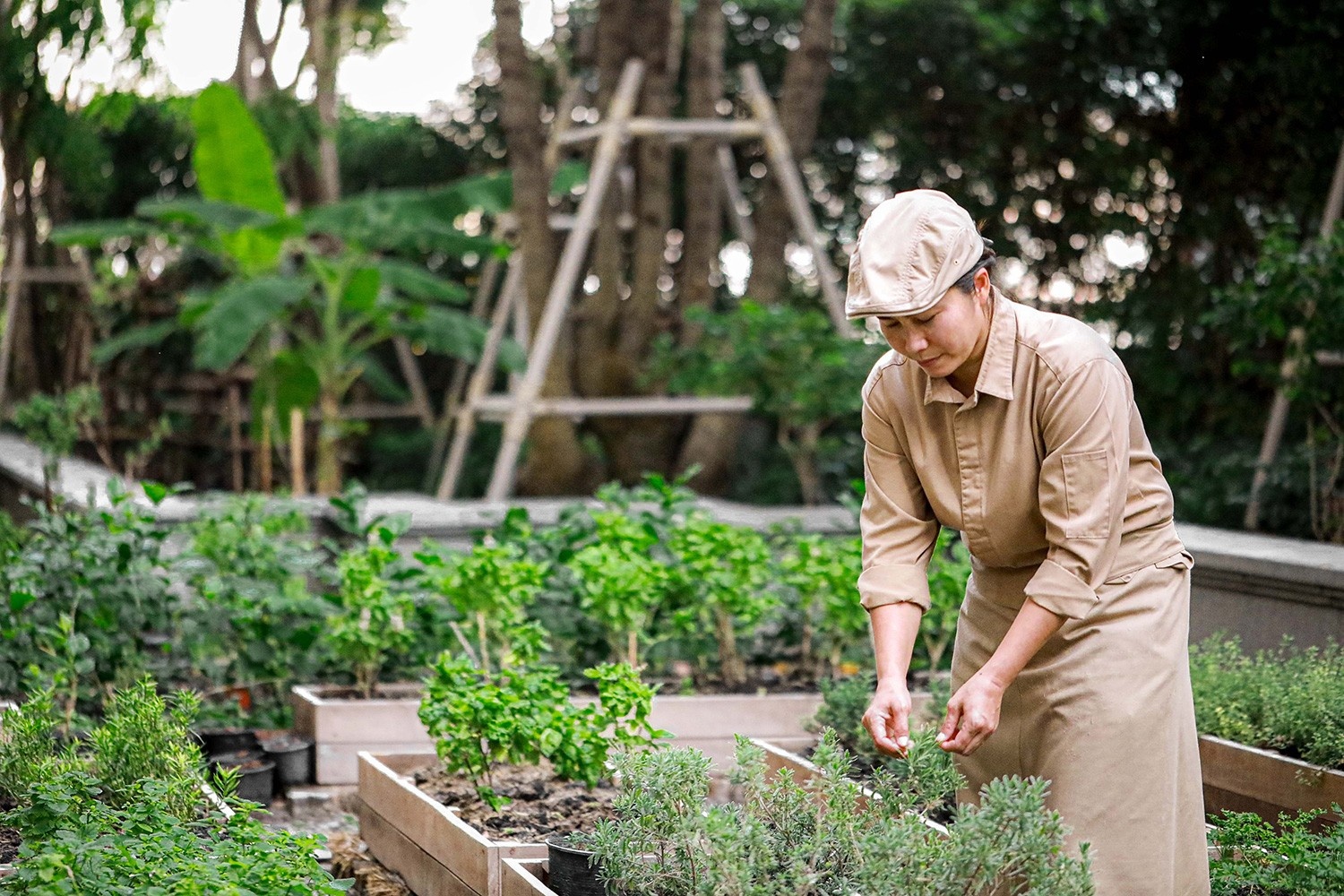“We think wine regions can do better. Many already are .”
What’s a Sustainable Wine Region Guide?
Get the Guide: Willamette Valley, Oregon.
Wine regions are often presented as luxurious escapes. Immersed in rolling hills, you’ll dabble in long lunches, bounce between exceptional tastings, and sleep in 5-star hotels. That version of wine country is real, but it leaves out a lot of other realities.
Wine is, by definition, an agricultural product born of working landscapes, many currently under multiple pressures. Climate change has made farming more unpredictable. Drought, heat, or excessive rain stresses vines. Chemical use harms soil and water. Labor might be underpaid or asked to work in challenging conditions.
The serenity seen by an outsider is shaped by choices: how the land is farmed, how food is sourced, and how businesses treat their workers and their waste. Some of those choices support healthy ecosystems and communities. Some don’t. A lot of that gets lost in romantic marketing.
At Azure Road, we think wine regions can do better. Many already are. When farms care for their soil, when restaurants buy from local producers, when wineries think beyond the next release, those decisions influence not only what you taste but the kind of place you’re standing in.
That’s why we’re launching a new series: Azure Road Sustainable Wine Region Guides. These stories explore how wine regions function — and how travelers can move through them in a more informed and respectful way.
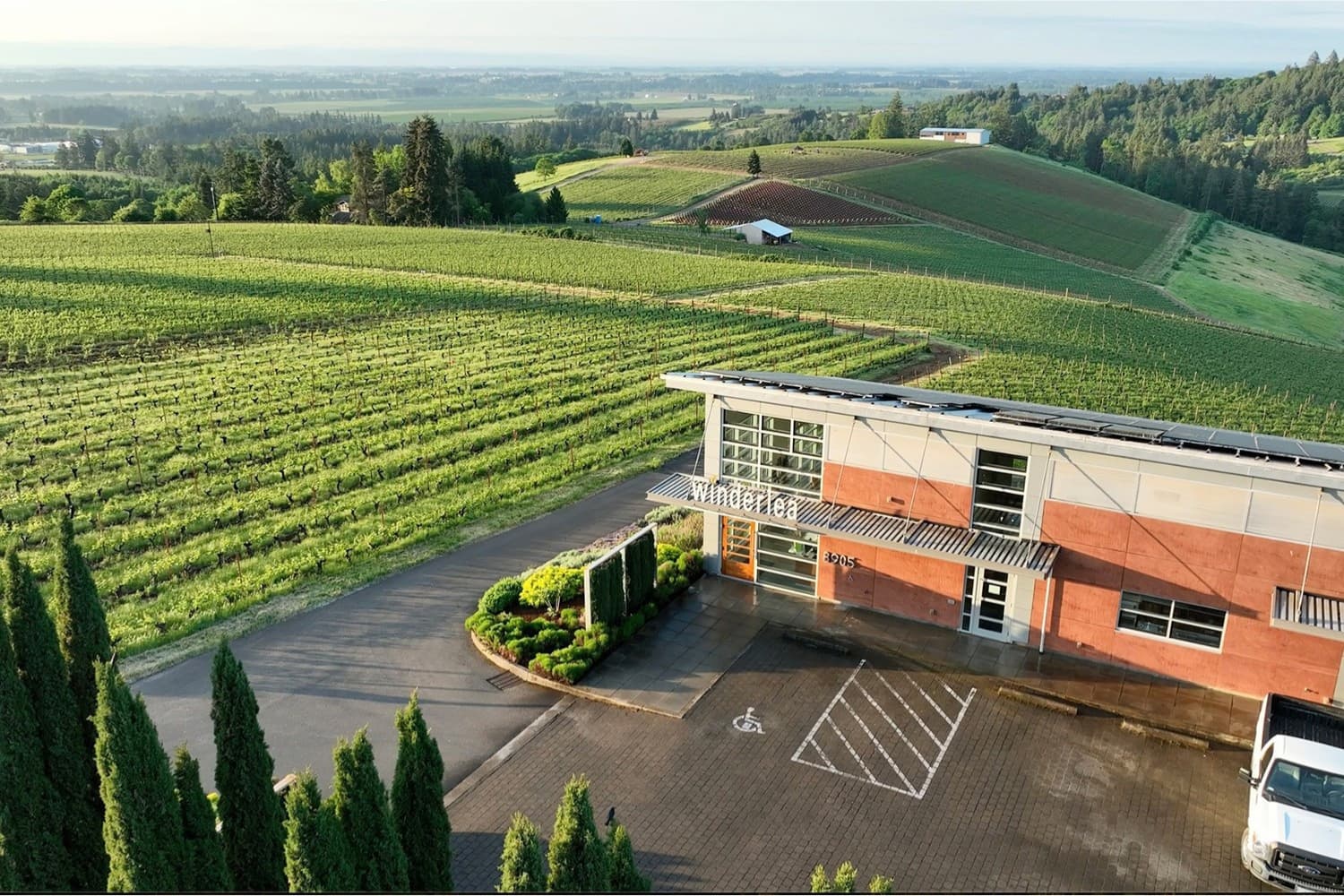
Aerial view of Winderlea Winery. Courtesy of Winderlea Winery.
How We Vet Businesses
Each guide in this series offers a curated selection of places to stay, eat, drink, shop, and explore. These are not A-to-Z directories or exhaustive listings. Instead, we spotlight the businesses and institutions that align most strongly with Azure Road’s values. We also strive to show readers that good design, good food, and good values can go hand-in-hand. Eating, shopping, and traveling responsibly aren’t just the domain of hippies or the rich anymore.
The Azure Road Editorial Team has vetted every recommendation to meet at least three of our North Stars inspired by the UN Sustainable Development Goals. These include thoughtful approaches to waste and water management, carbon footprint, heritage preservation, community impact, and more.
To help readers make informed, low-friction decisions, we display icons beneath each business to show which values our recommendations meet. These icons allow you to align your choices with what matters most, whether it’s supporting women-owned shops, minimizing packaging, or finding restaurants that prioritize local sourcing and food equity.
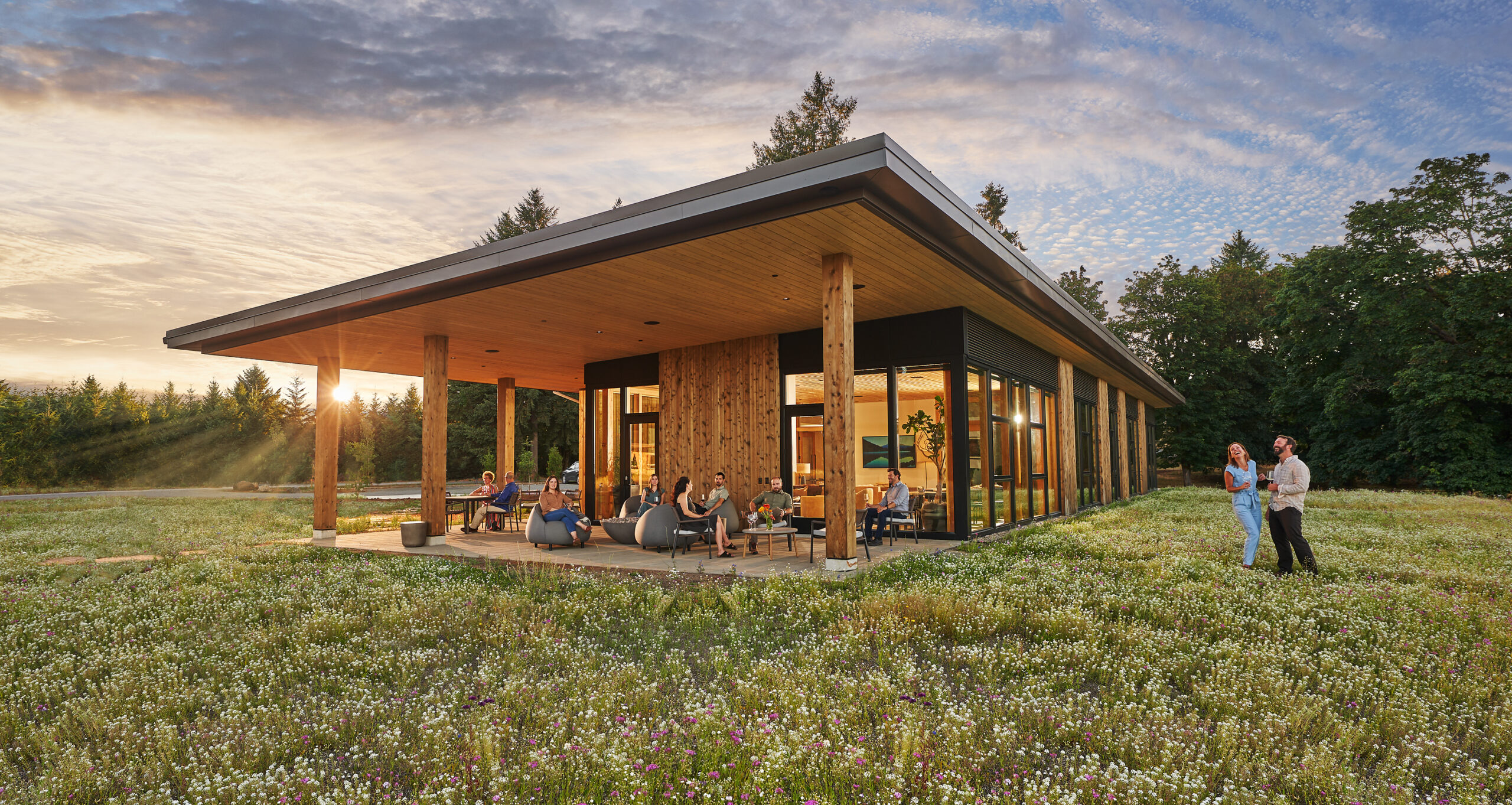
Outer view of Inn the Ground. Courtesy of Inn the Ground.
Why Willamette Valley
The easy answer: Portland, Oregon, was our first city guide, and the Willamette Valley sits just under an hour away. But proximity isn’t the reason we chose it.
The region is defined by Pinot Noir and Chardonnay, cooler-climate farming, and a collaborative winemaking culture that’s been evolving since the 1960s. This region also sits on ancestral lands of the Kalapuya peoples, who inhabited the Willamette Valley for thousands of years before colonization and whose descendants remain part of the Confederated Tribes of Grand Ronde and Confederated Tribes of Siletz Indians.
The Willamette Valley is also one of the few American wine regions where ethical and responsible practices are evident in everyday operations, not just listed on a website tab.
For example, the Willamette Valley leads the U.S. in winery-level B‑Corp certifications. In fact, 35 percent of all B‑Corp certified wineries in the country are located in Oregon, with many situated in the Willamette Valley. Nearly half of Oregon’s vineyard acreage is certified sustainable through programs like LIVE, USDA Organic, or the biodynamics-based Demeter.
Across wine, food, lodging, and retail businesses, messaging matches the actions. Restaurants build their menus around local farms. Inns minimize waste and energy use. That kind of cross-sector consistency doesn’t happen everywhere, but it does in the Willamette Valley.
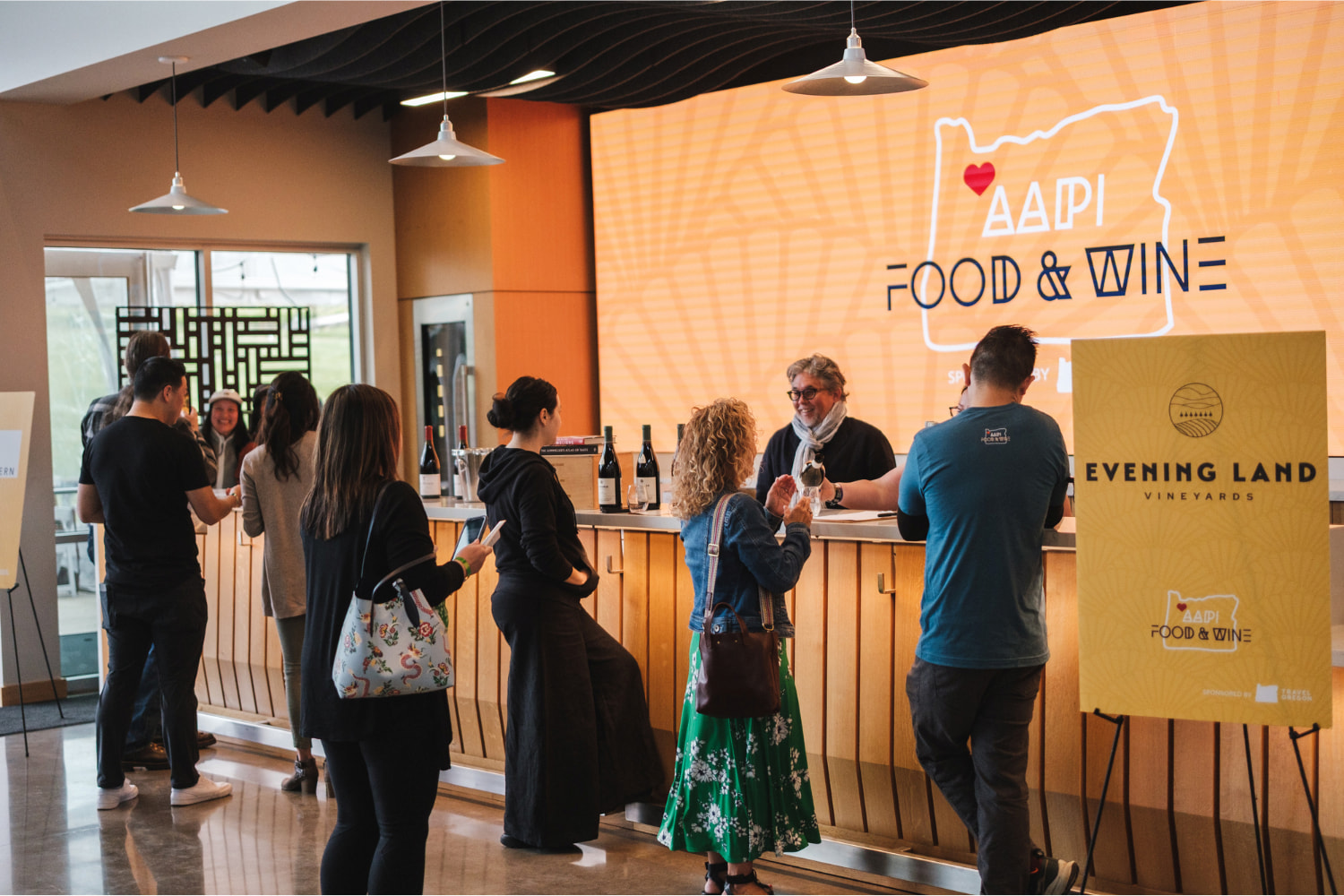
A shot from the AAPI Food & Wine Fest event. Courtesy of Cho Vineyards.
What Willamette Valley Is Doing Right
Wineries Lead by Example
At Remy Wines, founder Remy Drabkin brings transparency, equity, and climate action into every part of the business. She’s the mayor of McMinnville and the founder of Wine Country Pride and Queer Wine Fest. Her winery is also the first in the country to install a carbon-negative concrete slab, using an open-source mix that actively sequesters CO₂.
Other producers apply different but equally thoughtful approaches. At Abbey Road Farm, a B Corp–certified estate and working farm, cover cropping and on-site composting support regenerative agriculture. Antiquum Farm grazes sheep, chickens, and geese through the vineyard to build soil health without relying on outside inputs. At Cristom, winemaking runs on solar and organic practices that have been in place for decades.
These wineries don’t follow a single template. But each one makes decisions that prioritize long-term land care, energy use, and community involvement, not just the next release.
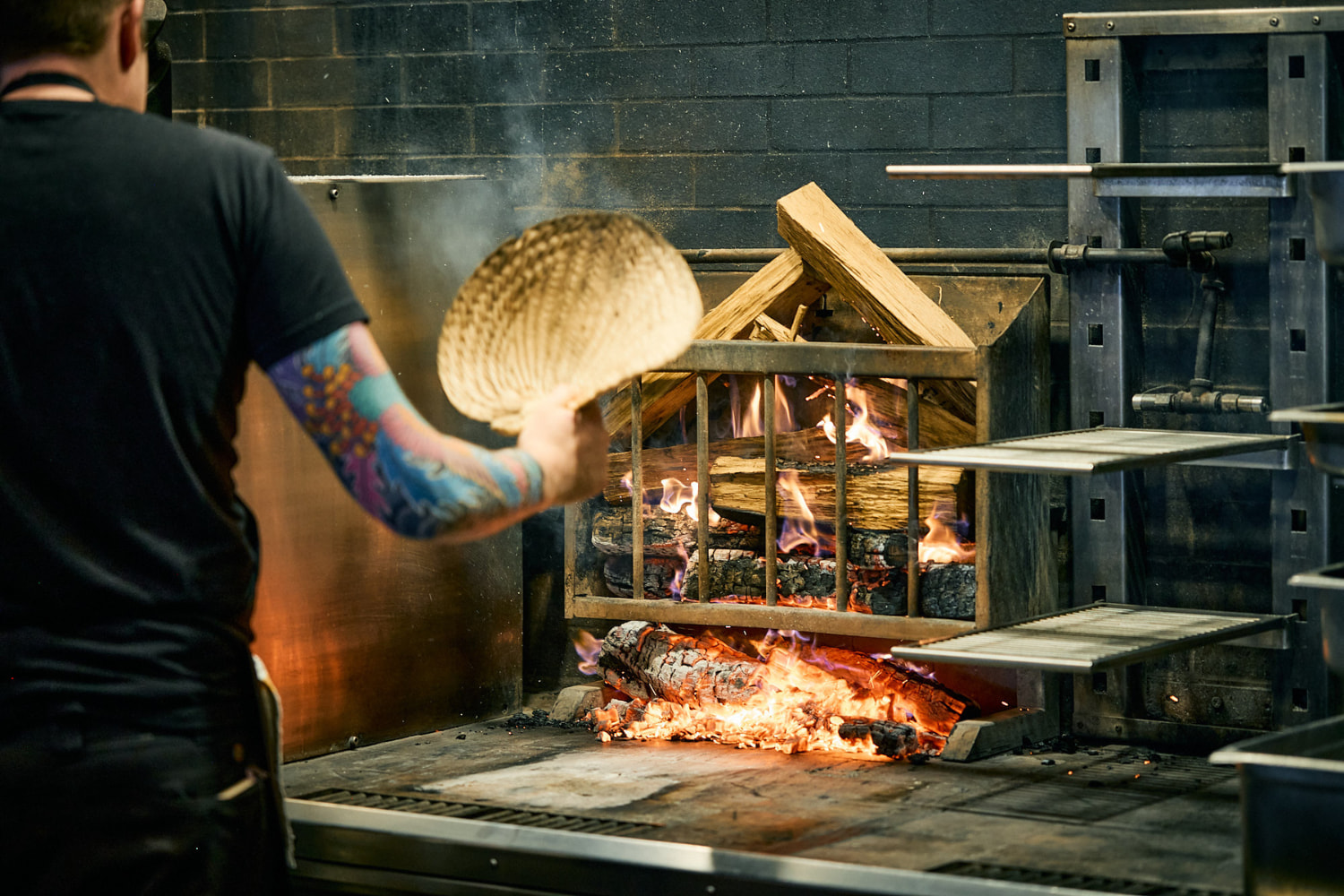
Cooking over fire at ōkta farm and kitchen. Coutesy of Tributary Hotel.
Restaurants Minimize Waste and Source Locally
The best kitchens in the valley work with what’s available, waste as little as possible, and keep their supply chains close.
At Hayward in Carlton, such work extends beyond the plate. For example, Chef Kari Shaughnessy partners with Chapul Farms, an insect-ag composting startup that turns kitchen scraps into nutrient-dense soil that cycles back to the farms supplying her produce. It’s a brilliant closed-loop system that benefits the soil, the kitchen, and the diners.
Restaurants like Okta have built entire tasting menus around nearby growers, foragers, and ranchers. Preservation and whole-animal butchery make the most of what’s available seasonally, reduce waste, and keep diners on their toes with innovative and flavorful dishes.
At Grounded Table in McMinnville, the chefs pull ingredients straight from the fields. The restaurant is part of The Ground’s broader project to reconnect guests with land, food, and farming through a combination of hospitality and regenerative agriculture.
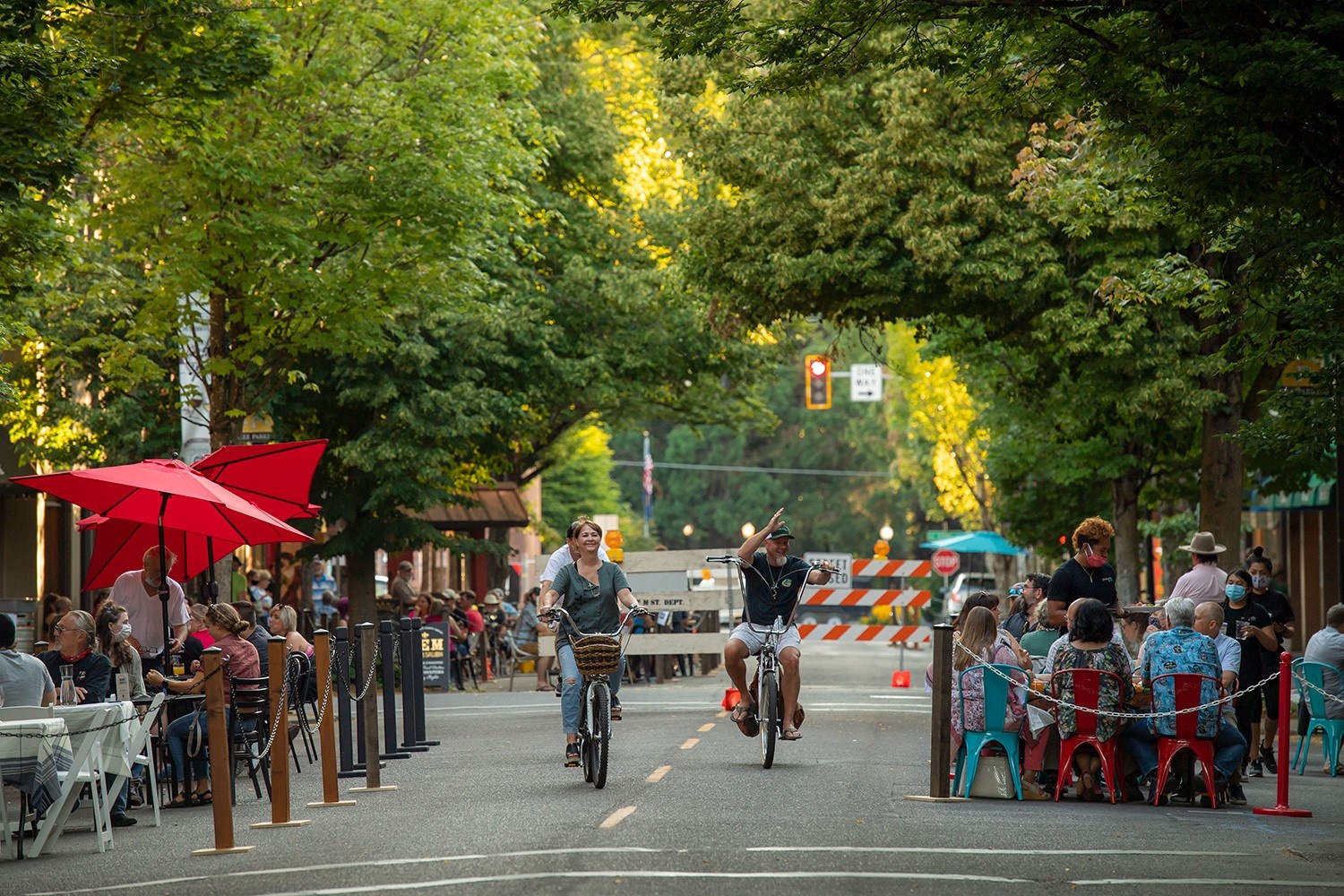
Cyclists on McMinnville's main street. Courtesy of Visit McMinnville.
Accessible and Inclusive Activities
For active travelers and non-drinkers, hiking and biking opportunities abound in Willamette Valley, lending more dimension to the region than just tastings and vineyard tours. Throughout the year, a robust festival calendar connects the community with visitors. Wine Country Pride brings together LGBTQ+ winemakers and allies for panels, parties, and educational programming, while the AAPI Food & Wine Festival celebrates Asian American producers in both food and beverage.
Explore the Guide
The full Willamette Valley guide is now live. It includes more than 30 wineries, along with restaurants, hotels, shops, and activities selected for both environmental practices and community impact. Each listing includes North Star icons that highlight what each business does best, whether that’s water management, clean energy, or social equity.
If you’re new to the series, you can read more about how we choose and vet businesses here.
More regions are in progress. For now, we hope this guide helps you experience the Willamette Valley with more clarity and context—and plenty of fun.
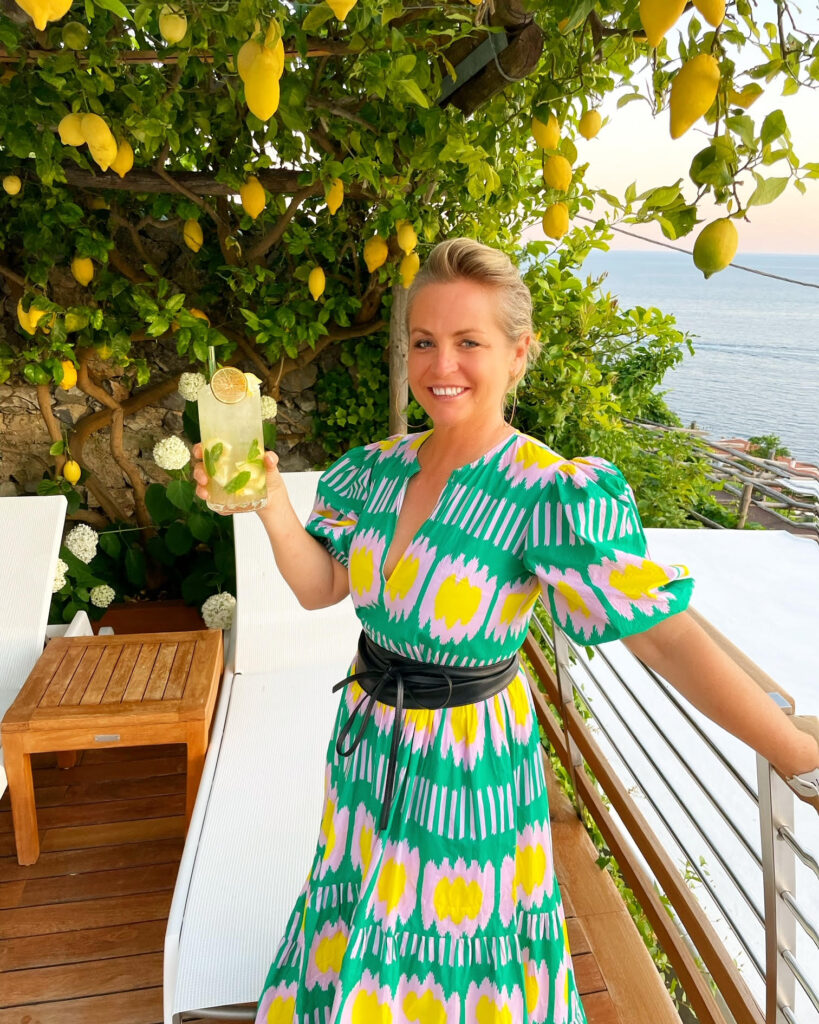
Founder and CEO of Azure Road, Lauren Mowery is a longtime wine, food, and travel writer. Mowery continues to serve on Decanter Magazine’s 12-strong US editorial team. Prior to joining Decanter, she spent five years as the travel editor at Wine Enthusiast. Mowery has earned accolades for her writing and photography, having contributed travel, drinks, food, and sustainability content to publications like Food & Wine, Forbes, Afar, The Independent, Saveur, Hemispheres, U.S. News & World Report, SCUBA Diving, Plate, Chef & Restaurant, Hotels Above Par, AAA, Fodors.com, Lonely Planet, USA Today, Men’s Journal, and Time Out, among others.
Pursuing her Master of Wine certification, she has also been a regular wine and spirits writer for Tasting Panel, Somm Journal, VinePair, Punch, and SevenFifty Daily. Mowery is a graduate of the University of Virginia and Fordham Law School, and she completed two wine harvests in South Africa.
Follow her on Instagram @AzureRoad and TikTok @AzureRoad
North Stars: Certifications, Community Support, Production & Consumption



